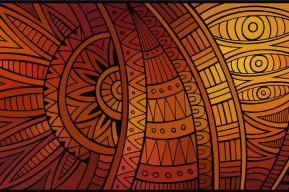News
Futureproofing students’ skills through STEAM and Coding in Palestine
Earlier this year, young people from across Palestine gathered in Jericho for a STEAM Camp and Hackathon centred on Artificial Intelligence, coding and robotics. A week of learning and hard work – and plenty of fun – culminated with a prize-giving ceremony awarding seven teams for their innovative prototypes.
Education in STEAM (Science, Technology, Engineering, Arts and Mathematics) and coding is a priority area for UNESCO’s work in Palestine. Enhancing 21st century skills is crucial to support young people to access the labour market – especially in the context of a high youth unemployment rate in the West Bank and Gaza.
UNESCO recently joined forces with the Ministry of Education in cooperation with Palestine Polytechnic University (PPU) to conduct the First Winter STEAM Camp and Hackathon under the project "Improving Student Skills for Innovation and Sustainable Development through STEAM and Coding in Palestinian Schools” funded by the Government of Japan.
The Camp and Hackathon took place over six days at PALPRO in the Jericho Agro-Industrial Park with the participation of 69 students and 19 trainers from the West Bank, Gaza and Jerusalem. It aimed to strengthen students’ capacities in coding, robotics and artificial intelligence (AI) and enhance their skills for innovation and sustainable development, using a STEAM approach and project-based learning. Participants developed robotic protypes related to agriculture, safety and security, health, and disability, eventually presenting them to a panel of judges during the Hackathon.
Taking part in a Hackathon in programming and coding was amazing. I’ve gained a lot of technical skills and it was great to meet students and teachers from across the West Bank and Gaza.
This activity was designed to support students to develop new technical skills, improve their team-working abilities and help them produce creative ideas and solutions using AI. Students were surrounded by like-minded peers, all eager to learn and create impactful projects. Soft, essential skills such as communication, problem-solving and collaboration were also built throughout the activity. The environment was also conducive to fostering healthy, friendly competition as participants learned how to compete in an amiable environment and encourage their peers to succeed and excel.
The week was packed full of educational activities, site visits at JAIP and beyond, and fun activities. Interactive sessions with industry experts also gave participants the chance to learn and discuss future career opportunities. In addition, it was the first time the students from Gaza could travel to the West Bank to engage with their Palestinian peers in person.
The students are lucky to have had this unique experience at such an early stage in their learning. The skills and experiences their minds have absorbed will be hugely beneficial for their future! The whole event was great for us coaches too – personally I’ve gained skills in time-management, working under pressure, managing resources, and thinking and acting fast in urgent situations.
At the end of the Hackathon, prototypes were presented to a judging panel who selected the winning teams. A high level ceremony and an exhibition of students’ prototypes was then conducted in the presence of the Assistant Undersecretary for Student Affairs, Mr Sadiq Al-Khadour, representing the Minister of Education H.E. Dr. Marwan Awartani, Ms Noha Bawazir, UNESCO Head of Office and Representative, Yukiasu Sumi, First Secretary at the Representative office of Japan to Palestine and the Vice President for Planning and Development at PPU, Dr. Ayman Sultan. The winners were awarded their trophies at a ceremony attended by representatives of partner institutions, faculty and students from PPU.
UNESCO extends its sincere congratulations to all participants of the Camp and Hackathon!
The winners were as follows:
- micro:bit and Arduino Microcontrollers Group:
- First Place: Sahar Al-Najjar, Zian Shawareb and Menna Attari for "Sight Stick.”
- Second Place: Bilal El-Jazzar, Karim Hammad and Youssef Dalloul for "Internet of Things Farm.”
- Third place: Ahmed Munther, Qais Al-Najjar and Adam Afana for "Smart Garage."
- Mini PC Raspberry Pi Group:
- First place: Sarah Muhammad, Yasmine Gharaibeh and Azad Hamdan for the "Factory Occupational Safety" project.
- Second place: Dalia Al-Qawasmeh and Ahmed Al-Karaki for "Smart Traffic Light."
- Third Place: Taleen Sharawna, Hanan Jamous and Ruba Salah El-Din for "Morning Sports Robot."
- Fourth Place: Amir Omar and Ibrahim Bishtawi for "What I Need."
Check out the video above showcasing the STEAM and Coding Camp and Hackathon!










